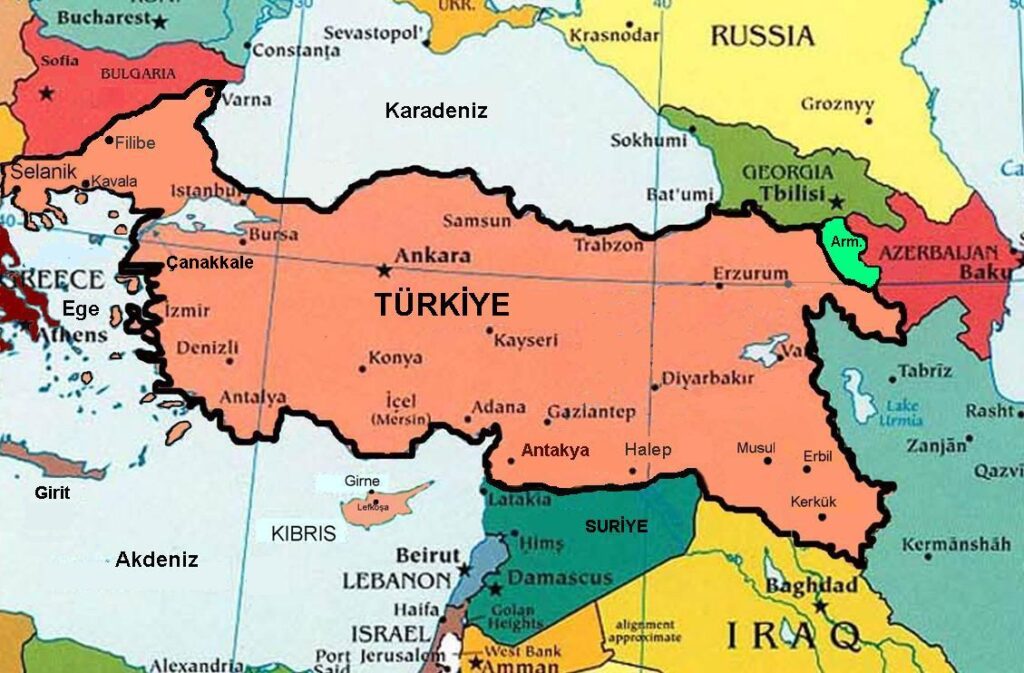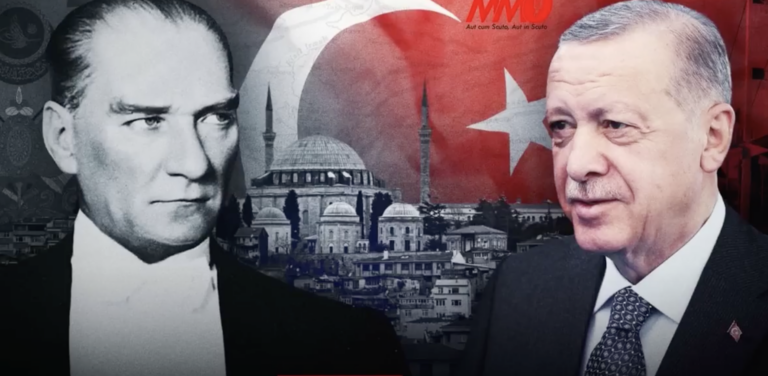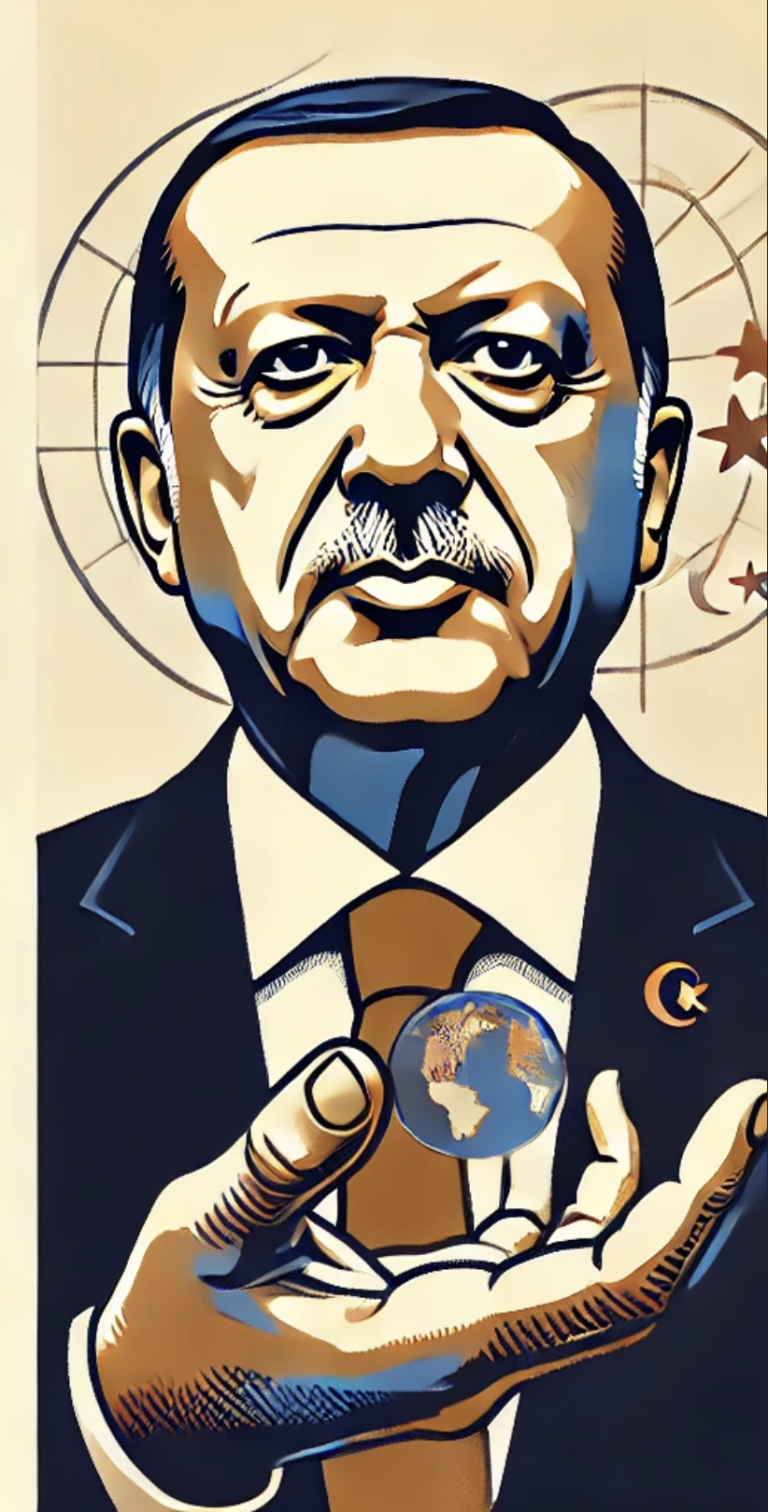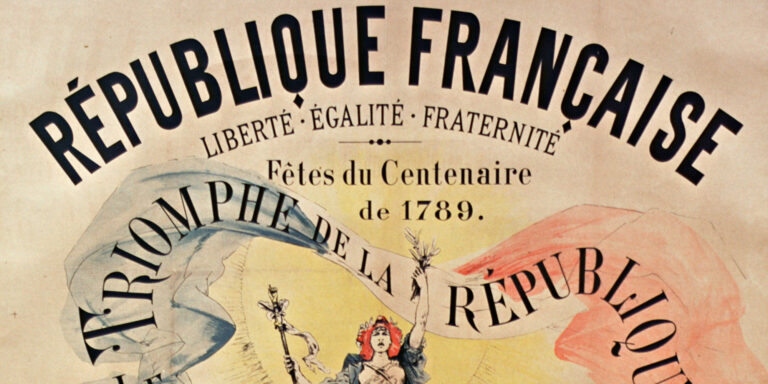by Andrea Tucci,
Looking ahead, President Erdogan envisions a “new” or “great” Turkey one that seeks to revive the glory of the Ottoman Empire, with Mustafa Kemal Atatürk, revered as the “Father of the Turks” which collapsed after the First World War end with the recent developments in Syria have provided him with an opportunity to rekindle these ambitions.
After initially being sidelined in the region following Oct. 7, Turkey has regained a prominent position with the dramatic takeover of Damascus by Hay’at Tahrir al-Sham rebels and factions, which are closely linked to Ankara, who has supported the Syrian opposition against Bashar al-Assad since the beginning of the civil war.
Erdogan, in a speech on Dec. 13, he reiterated his commitment to Syria’s territorial integrity while invoking a provocative historical reflection, he said: “When the First World War redefined our region’s borders, what would have happened if conditions had been different? It’s highly likely that cities like Aleppo, Idlib, Hama, Damascus and Raqqa would have been our provinces today. We’re not the only ones to say it, history says it, geography says it, truth says it, our ancestors say it, the Turkish flag raised on the Citadel of Aleppo says it,” he said, referring to a Turkish flag raised on Aleppo’s iconic citadel shortly after rebel groups had seized the city.
A Turkish political analysis suggested that while this rhetoric might be based on “historical arguments,” clearly signals that Turkey intends to play a much larger role in Syria’s future.
Beyond the attacks launched since the start of the rebel offensive by pro-Turkish forces within the Syrian National Army (SNA) against Kurdish strongholds in northern Aleppo, many signs indicate that Turkey and its allies were planning, since some time a large-scale incursion into this territory controlled by the Syrian Democratic Forces (SDF) and its Kurdish militia. Turkish commandos have been deployed near the Kurdish Kobane, along the northern border with Turkey. Perhaps aTurkish cross-border operation could be imminent, aiming to establish a buffer zone to push what Ankara believes is an existential threat to its borders.
Some analysts argue that Turkey’s motives extend beyond security concerns and are rather an excuse to serve its imperial ambitions. and this is somehow a unique opportunity for Ankara, because after all its past attempts.
Turkey’s border issue is not new. Erdogan has never hidden his resentment toward the Treaty of Lausanne, signed in 1923, which set the boundaries of modern Turkey. He believed that Atatürk had made unjustified territorial concessions. “The size of our territory — which was 2.5 million square kilometers in 1914 — dropped to 780.000 square kilometers when we signed the Treaty of Lausanne,” “Those who are locking Turkey into this vicious circle want us to forget the Seljuk and Ottoman empires.” He said.
The National Pact, adopted by the Ottoman Parliament in 1920, claimed territories stretching from Eastern Thrace — now part of Greece — to Cyprus, the eastern Aegean islands, parts of northern Syria, northern Iraq, all of modern Armenia, parts of Georgia and even Iran.

Photo: TURKEY’S NEW MAPS ARE RECLAIMING THE OTTOMAN EMPIRE
Globally, imperialist ambitions seem to be reemerging.
Far from being purely nationalistic, Erdogan’s neo-Ottoman project, like others, adopts a broader, almost emotional perspective, expanding Turkey’s borders not geographically, but symbolically and culturally, by strengthening its ties with former Ottoman territories. When he speaks of ‘nation’, he’s referring to a wider Islamic community, ‘the Ummah in order to revive the Ottoman legacy from the Balkans to the Caucasus, the Middle East and Africa.
This ambition cannot be achieved without creating tensions with other regional powers. In Syria where Ankara already controls strategic zones its actions are raising alarm, infact Israel is concerned that “Syria could become a Turkish protectorate,” a development that could significantly restrict its freedom of action in the region.
Meanwhile Iran’s attempts at regional dominance through its “Axis of Resistance” a coalition of primarily non-state actors in Iraq, Syria, Lebanon, the occupied Palestinian territories and Yemen are increasingly being hindered by Turkey’s expanding influence and plans in the region.
While Turkey currently enjoys its position as key power in Syria, several challenges could soon threaten the country, notably regarding its relations with its NATO partners, especially Washington.
Erdogan could face a major challenge after the fall of Assad, especially if the U.S. continues to support the Democratic Union Party formation, its long-standing Kurdish ally.
Turkish Foreign Minister said that Cooperation is essential:
“Not Turkish, Iranian or Arab domination, but cooperation.”
As Mustafa Kemal Atatürk said: “Democracy is our ideal, and Peace at home is Peace in the World….”




